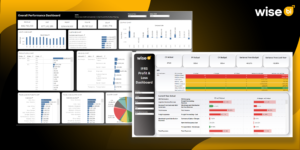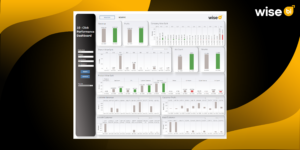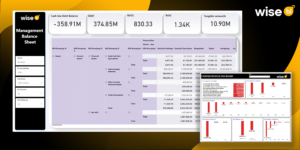As we are going to explore the MIS report first we need to know the abbreviation of MIS. It is nothing but a Management Information System (MIS). MIS reports are comprehensive documents that present the most significant KPIs, trends, and metrics by combining and analyzing data from multiple internal locations of the company.
When all the data is gathered for the smooth operation of the business, you may use a MIS report to assist you in making data-driven decisions. Let’s examine MIS reports and the useful information they can offer various firms.
What does MIS Report mean?
A company’s management information system report (MIS), which serves as the foundation for organizing, collecting, and reporting information, is a vital component of the entire system. The first step includes deciding on which data sources belong to an organization, they may include spreadsheets, databases, ERP systems and other software applications.
After the data sources have been located, MIS reports employ automatic techniques to extract only the pertinent data and compile it into a single, centralized database. This consolidation phase includes assembling data from many sources, standardizing formats, and cleansing the data to guarantee accuracy and clarity.
MIS reporting employ analytical tools and algorithms to evaluate the data after it has been consolidated, producing significant results. To help stakeholders make wise decisions, the analysis thus comprises locating trends, patterns, correlations, and exceptions in the data.
Finally, information system reports give the reader access to the studied data in an approachable manner through tables, charts, graphs, and dashboards. Because of these visual representations, those who make decisions can immediately understand the key results and take appropriate action based on the insights provided by MIS reports.
Pros of MIS Reports
- Informed Decision-Making: MIS reports provide numerous stakeholders with relevant and accurate information from reliable data analysis. This will enable managers at all levels of the business to make informed, strategic decisions consistent with the organization’s goals.
- Performance Monitoring: Businesses can monitor their metrics and key performance indicators (KPIs) in real-time or almost real-time with the help of MIS reporting. Companies can identify patterns, evaluate performance measurements such as revenue, customer satisfaction scores, and operational effectiveness, evaluate their progress toward objectives, and take remedial measures.
- Efficiency and Productivity: The automated data processing and reporting tools make processes much simpler by removing data entering and manipulation tasks. This saves time and money while also increasing overall efficiency and production by allowing staff to focus on value-added activities rather than administrative responsibilities.
- Openness and Accountability: MIS reports promote openness and accountability by providing users with detailed performance statistics. Organizations can foster a culture of openness and accountability by making performance indicators available to all relevant parties. This allows choices to be made based on factual evidence rather than subjective views.
- Strategic Planning: By providing firms with information on consumer behavior, market trends, and the competitive environment, MIS reporting aids in strategic planning. Organizations can identify new trends, reduce the risk of market fluctuations, and create plans of action that will enable them to seize these opportunities by recognizing these patterns and trends.
Cons of MIS Reporting
- Complexity: Successful development and maintenance of MIS reporting systems requires substantial knowledge of data management, analytics, and technology. Integrating data from several sources, ensuring data accuracy and quality, and maintaining the reporting process’s integrity may pose issues for enterprises.
- Issues with Data Quality: When you have a lot of data from several sources, it might be challenging to validate and update the information in MIS reports. Errors, inconsistencies, and disparities in data could threaten the accuracy of MIS reports, leading to inaccurate judgments and conclusions.
- Cost: The initial investment and ongoing maintenance expenses for MIS reporting systems can be significant. To implement MIS reporting initiatives, organizations might need to buy hardware, software, and people; small and medium-sized enterprises might need help managing their limited resources.
- Opposition to Change: Workers who are unprepared to embrace new technology or used to outdated reporting methods may be against implementing MIS reporting systems. Change management actions could be necessary to overcome disagreements and encourage the enterprise’s adoption of MIS reporting tools and procedures.
- Security and Privacy Concerns: Data transfer and storage in MIS reports may pose security and privacy risks. Organizations must establish a solid security policy to protect sensitive data against hackers, unlawful use, and data breaches. Another problem for MIS reporting initiatives is ensuring compliance with data protection rules like as GDPR and HIPAA.
Conclusion
To sum up, MIS reports are essential resources for all business sectors. MIS reports help logistics organizations make intelligent choices, manage operations, and encourage sustainable growth by giving timely and accurate insights to stakeholders. As technology advances, businesses must embrace the possibilities of MIS reports to be relevant and flourish in modern times.
BI can help you solve the problems faced and how your business can embrace the revolutionary power of data-driven decision-making by introducing MIS reports into your business operations today. Let nothing make you wait until you make the right decision.




